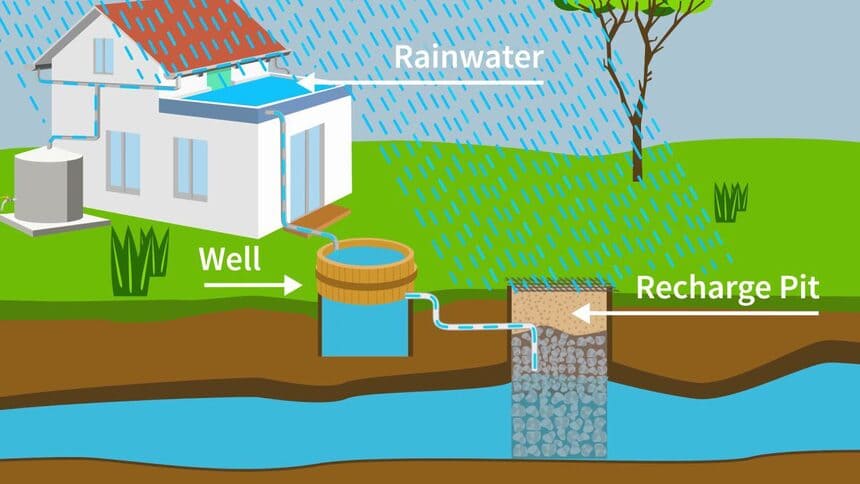
Blending Tradition with Innovation: Harnessing Conventional Wisdom in Rainwater Harvesting to Combat Climate Change
Title
Blending Tradition with Innovation: Harnessing Conventional Wisdom in Rainwater Harvesting to Combat Climate Change
Author
1. Poulami Datta, Student, Tamil Nadu Agricultural University, Coimbatore, Tamil Nadu, India
Abstract
In the face of escalating climate change challenges, rainwater harvesting (RWH) emerges as a viable solution to enhance water security and resilience. This paper explores the integration of conventional wisdom and traditional RWH techniques with modern technologies to mitigate the risks associated with climate variability. The research highlights these practices' effectiveness, sustainability, and socio-economic benefits by analysing case studies from diverse geographical regions. The findings underscore the potential of RWH in reducing dependency on conventional water sources, improving groundwater recharge, and fostering community resilience. The paper concludes with policy recommendations to mainstream RWH in climate adaptation strategies.
Keywords
Conclusion
In light of the challenges posed by climate change, the study highlights the importance of common wisdom in improving the efficiency and longevity of RWH systems. Results from research in Jodhpur, Gansu, the Andes, and Ethiopia show that traditional RWH techniques, combined with contemporary technology, effectively answer water scarcity and climate change problems. In addition to bolstering agricultural output and community resilience, these systems enhance groundwater recharge and decrease soil erosion.
The environmental benefits, such as improved ecosystem health and biodiversity, and the socio-economic benefits, such as higher agricultural output and better livelihoods, demonstrate the multi-dimensional advantages of traditional RWH techniques. The significance of community involvement, adaptable design, governmental backing, and combining traditional and contemporary methods are among the most important lessons.
Advocating for legislative changes, funding capacity development, and encouraging community involvement are all crucial for integrating RWH into climate adaptation plans. The flexibility and potential of these systems to ameliorate the consequences of climate change worldwide are shown by their performance across varied geographical locations. Accordingly, using traditional knowledge in RWH is a deliberate step towards a future that is both sustainable and resilient, rather than just paying homage to the past.
Author Contrubution
The author alone is responsible for the study's conception, design, data collection, analysis, interpretation, and manuscript preparation.
Funding
This research, including authorship and publication, did not receive any specific grant from funding agencies in the public, commercial, or non-profit sectors.
Conflict of Interest
The authors declare no conflicts of interest related to this study.
Data Sharing Statement
Data sharing is not applicable to this article.
Software And Tools Use
This research did not utilize any specific software or tools.
Acknowledgements
I appreciate the support and expertise of everyone who contributed to this research and manuscript writing, as well as the insightful comments from anonymous reviewers.
Corresponding Author
Poulami Datta
Tamil Nadu Agricultural University, Coimbatore, Tamil Nadu, Student, India
Copyright
Copyright: ©2026 Corresponding Author. This is an open access article distributed under the terms of the Creative Commons Attribution License , which permits unrestricted use, distribution, and reproduction in any medium, provided the original author and source are credited.
Datta, Poulami. “Blending Tradition with Innovation: Harnessing Conventional Wisdom in Rainwater Harvesting to Combat Climate Change.” Scientific Research Journal of Environment, Earth and Physical Science, vol. 2, no. 1, 2024, pp. 1-6, https://isrdo.org/journal/SRJEEP/currentissue/blending-tradition-with-innovation-harnessing-conventional-wisdom-in-rainwater-harvesting-to-combat-climate-change
Datta, P. (2024). Blending Tradition with Innovation: Harnessing Conventional Wisdom in Rainwater Harvesting to Combat Climate Change. Scientific Research Journal of Environment, Earth and Physical Science, 2(1), 1-6. https://isrdo.org/journal/SRJEEP/currentissue/blending-tradition-with-innovation-harnessing-conventional-wisdom-in-rainwater-harvesting-to-combat-climate-change
Datta Poulami, Blending Tradition with Innovation: Harnessing Conventional Wisdom in Rainwater Harvesting to Combat Climate Change, Scientific Research Journal of Environment, Earth and Physical Science 2, no. 1(2024): 1-6, https://isrdo.org/journal/SRJEEP/currentissue/blending-tradition-with-innovation-harnessing-conventional-wisdom-in-rainwater-harvesting-to-combat-climate-change
2154
Total words792
Unique Words111
Sentence18.945945945946
Avg Sentence Length0.3742042042042
Subjectivity0.066747461747462
PolarityText Statistics
Viewed / Downloads
Total article views: 262 (including HTML, PDF, and XML)| HTML | XML | Total | |
|---|---|---|---|
| 166 | 58 | 38 | 262 |
Viewed (geographical distribution)
Thereof 262 with geography defined and 0 with unknown origin.